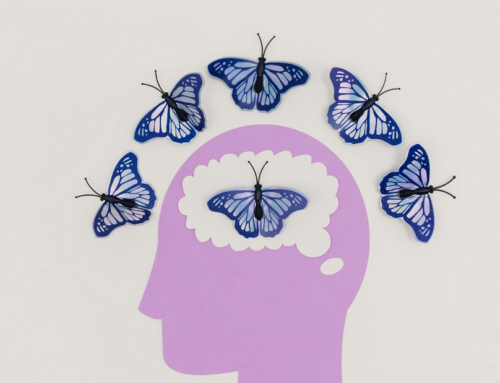Earlier this month, federal investigators arrested numerous high-profile parents, including lawyers, executives, CEOs, and well-known entertainers, for their involvement in a college admissions scandal. The more than 30 involved parties, led by a private college admissions adviser, used bribery and deceptive tactics to guarantee the admission of their children into prestigious colleges, such as UCLA, USC, Yale, Stanford, and Harvard.(1)
While some of these tactics included faking athletic profiles and bribing college employees, many of these parents accomplished their goals by using the accommodations meant for students with special needs. These wealthy parents claimed that their students had learning disabilities that they never had in order for the students to have accommodations like extra time for their tests, or taking the test alone with just a proctor. This allowed the opportunity for their test results to be doctored or faked by bribed test administrators, or even for someone else to take the test for them.(2)
Accommodations Only Benefit Those Who Need Them
Understandably, this information has had a painful impact on the special needs community.2 Receiving accommodations for students with legitimate conditions is already overly difficult, with IEP plans and 504 plans essential aspects of a student’s successful education that still often require fierce advocacy from parents and caregivers in order to be put into appropriate action. When requesting college accommodations, parents are quickly buried under mountains of paperwork and lengthy response times.
There has always been an unfortunate and hugely incorrect stigma surrounding accommodations, with students who need the accommodations feelings self-conscious about their need thanks to a pervasive belief among students who do not need accommodations that they give students an unfair advantage. But a student with dyslexia, for instance, who receives accommodations on the SAT exam, is simply being granted a level testing playing field with their fellow peers; they absolutely do not hold any advantage over a student without that accomodation, because that student does not need the accommodation.
The truth is that if a student does not have a condition that requires an accommodation, they really aren’t going to benefit from changes like extra time or a quiet testing location — at the end of the day, it’s really all about their knowledge of the exam.(3) Said the Learning Disabilities Association of America in a public statement, “These actions hurt all individuals with disabilities, including those with learning disabilities, by perpetuating the misperceptions that many students who obtain accommodations on college admissions do not have disabilities and that this abuse is widespread.” (5)
Accommodations, when granted appropriately, allow every child a fair chance for a test score that accurately reflects their performance. In the case of this college admissions scam, however, accommodations are being used in the worst way possible — and in a way that has parents of children with learning differences deeply concerned about the impact that this might have on their ability to receive proper accommodations for their children. Will testing boards tighten their already tight accommodations rules, requiring more paperwork and more extensive proof of disability? Will the stigma against special needs students and their learning needs worsen?
Accomodations in the Wake of the College Admissions Scandal
There are a number of disturbing things that were said to the parents involved in the scandal by the main leader of the scheme, college consultant William Singer, including comments encouraging the parents to have the students appear “not as bright” so as to receive the accommodations.(2) This is another upsetting and incorrect stigma. The Learning Disabilities Association of America’s statement continued in response, “Individuals with learning disabilities have average to above-average intelligence and have a neurobiological disorder that impairs their ability to learn yet are capable of average or above-average achievement.”(5)
In a public statement of its own, The College Board announced, “We will always take all necessary steps to ensure a level playing field for the overwhelming majority of test takers who are honest and play by the rules.” The ACT, meanwhile, stated, “ACT is committed to ensuring that all students have an equal opportunity to demonstrate what they’ve learned in school through their hard work. No student should have an unfair advantage over any other.” (6)
What Can Parents of Students with Special Needs Do Now?
Parents of students who need accommodations in school and in preparation for college admissions should, first and foremost, keep their children from allowing this scandal to threaten their self-confidence. Reassure students that their learning differences are just that — differences — and have no bearing on their intelligence or ability to succeed. Accomodations simply allow students with reading, math, sensory, attention, or other disorders who respond differently to test taking to thrive as equally as their peers.
Parents must also continue to be mindful advocates for their students, and encourage students to be advocates for themselves when possible. If your child has an IEP or 504 Plan, they should be able to qualify for reasonable accomodations when taking the SAT or ACT exam. Neurobehavioral Associates routinely attends IEP meetings and can help parents to ensure that their child is receiving a thorough plan and appropriate accommodations. We are also able to provide qualified testing to confirm the need for accommodations on essential college tests like the SAT or ACT, as well as a comprehensive neuropsychological assessment.
Neurobehavioral Associates will provide you with the documentation you need to provide your child with the fair and legitimate education that they — and all children — deserve.
References:
- Chappell, B., & Kennedy, M. (2019, March 12). U.S. Charges Dozens Of Parents, Coaches In Massive College Admissions Scandal. Retrieved March 28, 2019, from https://www.npr.org/2019/03/12/702539140/u-s-accuses-actresses-others-of-fraud-in-wide-college-admissions-scandal
- How The College Admissions Scandal Could Spell Trouble For Students With Disabilities. (2019, March 18). Retrieved March 28, 2019, from https://www.disabilityscoop.com/2019/03/18/how-college-scandal-trouble-disabilities/26202/
- Wichard-Edds, A. (2019, March 14). Could the fallout from the admissions scandal hurt kids with disabilities? Retrieved March 28, 2019, from https://www.washingtonpost.com/lifestyle/2019/03/14/could-fallout-admissions-scandal-hurt-kids-with-disabilities/?utm_term=.258fe439d1c0
- Lombardo, C. (2019, March 14). Why The College Admissions Scandal Hurts Students With Disabilities. Retrieved March 28, 2019, from https://www.npr.org/2019/03/14/703006521/why-the-college-admissions-scandal-hurts-students-with-disabilities
- LDA Condemns Fraud in College Admissions Testing Accommodations. (2019, March 13). Retrieved March 28, 2019, from https://ldaamerica.org/lda-condemns-fraud-in-college-admissions-testing-accommodations/
- Jaschik, S. (2019, March 18). The Week That Shook College Admissions. Retrieved March 28, 2019, from https://www.insidehighered.com/admissions/article/2019/03/18/look-how-indictments-shook-college-admissions






